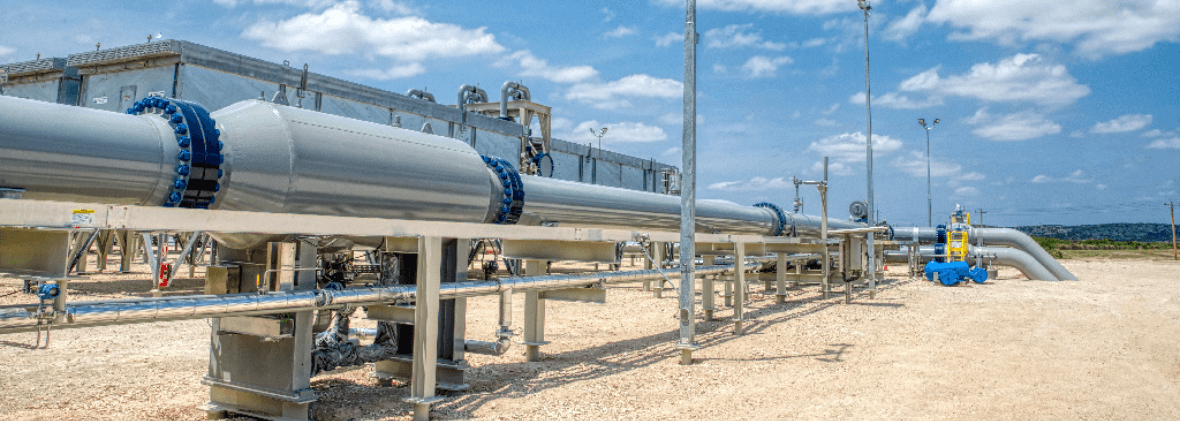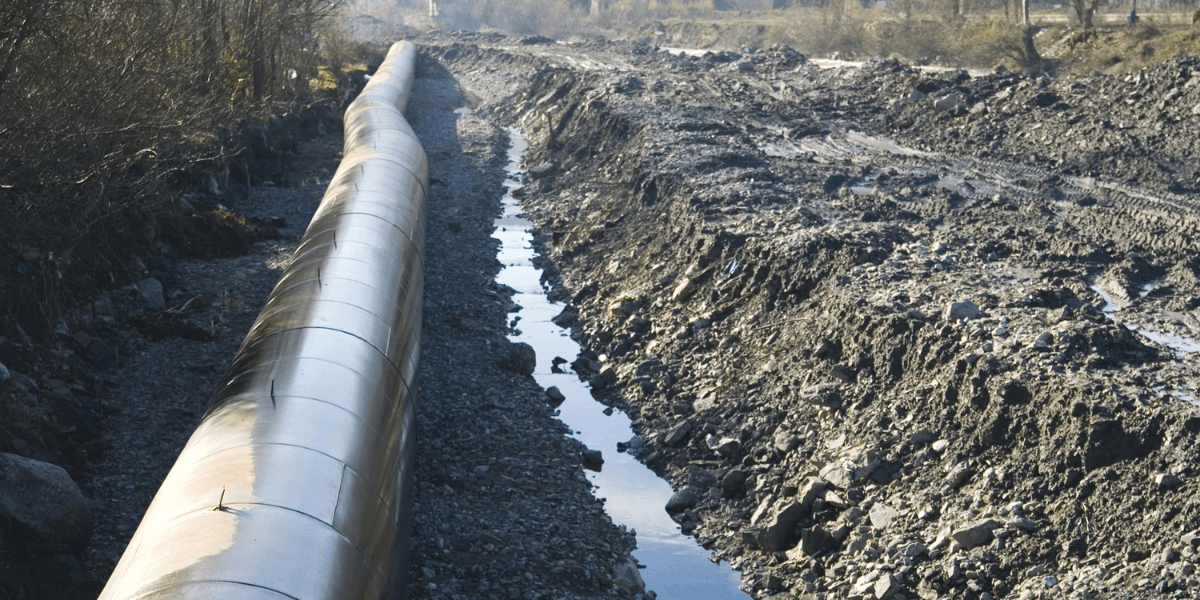Superior Oilfield pipeline equipment rentals: real success stories
Wiki Article
A Comprehensive Guide to the Various Kinds Of Oil Field Equipment and Pipeline Equipment Available
The oil and gas market relies heavily on customized devices for effective extraction and transport. Various kinds of machinery, from piercing rigs to tank, play vital roles in this complicated procedure. Each tool serves distinctive features that add to general functional success. Understanding these elements is vital for any person associated with the field. As the industry progresses, so also do the technologies that support it. What advancements are on the horizon?
Drilling Rigs: The Foundation of Oil Exploration
Drilling rigs work as the crucial machinery in the domain of oil expedition, enabling firms to gain access to hydrocarbon gets buried deep beneath the Planet's surface. These rigs can be found in various kinds, including land rigs, offshore rigs, and mobile devices, each developed to run in particular settings. Furnished with innovative innovation, piercing rigs can permeate geological developments with precision, making sure efficient source removal. The structural stability and functional abilities of these rigs are essential, as they need to withstand extreme conditions and significant stress. Moreover, the option of an exploration rig affects the total project expense and timeline, making it a crucial factor to consider for oil companies seeking to maximize their expedition initiatives and optimize performance in their operations.Pumps: Crucial for Fluid Activity
In the oil removal procedure, the function of pumps is substantial, helping with the movement of liquids throughout different stages of production. Pumps are necessary for transporting petroleum, water, and various other fluids from below ground tanks to the surface area and after that with pipelines to refineries. They are available in different types, including centrifugal, favorable variation, and completely submersible pumps, each serving particular purposes based upon the liquid attributes and operational requirements. Centrifugal pumps are commonly used for their performance in high-flow applications, while favorable displacement pumps master taking care of thick fluids. The choice of pump influences general efficiency, functional security, and maintenance prices. Appropriate selection and upkeep of pumps are crucial for optimizing manufacturing and lessening downtime in oil field procedures.Valves: Managing Circulation and Pressure

Shutoffs play an important role in handling the circulation and stress of fluids within oil fields and pipelines. Different kinds of valves serve unique applications, each created to accomplish specific functions essential for reliable procedure - Superior Rentals Contact. Understanding the qualities and uses these valves is vital for enhancing system efficiency and security
Types of Valves
Important parts in oil area procedures, shutoffs play a crucial duty in regulating the circulation and stress of fluids within pipelines and equipment. Various kinds of shutoffs are made use of to satisfy the diverse needs of oil and gas production. Usual kinds include gate shutoffs, which give a straight-line circulation and marginal stress decrease; globe shutoffs, recognized for their throttling capabilities; and ball shutoffs, acknowledged for their quick on/off control. Additionally, check shutoffs stop backflow, while butterfly shutoffs use a lightweight service for regulating circulation. Each valve type is made with particular materials and setups to hold up against the rough problems typically located in oil fields, making certain reliability and performance in procedures. Recognizing these types is crucial for efficient system administration.Valve Applications and Features
While different sorts of valves serve distinctive functions, their key applications rotate around controlling circulation and stress within oil and gas systems. Valves such as gateway, globe, and round valves control liquid motion, making certain peak performance and safety and security. Gate shutoffs are commonly used for on/off control, providing very little circulation resistance. Globe valves, on the various other hand, deal accurate circulation law, making them appropriate for strangling applications. Round valves are favored for their fast procedure and tight sealing abilities. Furthermore, pressure safety valve are essential for avoiding system overpressure, securing tools integrity. In general, the proper option and application of shutoffs enhance operational effectiveness, making sure the trusted transport of oil and gas through pipelines and processing facilities.Compressors: Enhancing Gas Transport
Compressors play a vital duty in the reliable transportation of gas, ensuring that it moves efficiently through pipes over lengthy ranges. These tools raise the stress of all-natural gas, permitting it to get over rubbing and altitude modifications within the pipeline system. Furthermore, compressors assist in the harmonizing of supply and demand, accommodating fluctuations in intake and production prices. Numerous kinds of compressors are utilized in the market, including centrifugal, reciprocating, and rotary screw compressors, each offering distinct benefits based look at this web-site upon the operational requirements. Routine upkeep of these compressors is important to maximize efficiency and decrease downtime, eventually adding to a reputable gas transportation network. Their critical feature highlights the significance of compressors in the overall oil and gas framework.Storage Tanks: Safe and Effective Fluid Monitoring
Efficient transport of gas relies on numerous supporting systems, among which is the appropriate management of storage containers. These containers play a necessary role in securely containing fluids, guaranteeing that functional performance is maintained while reducing ecological risks. Created from long lasting products, they are designed to endure high pressures and harsh aspects. Appropriately sized and purposefully located, storage containers facilitate the smooth circulation of gas and other fluids, protecting against bottlenecks in supply chains. Routine upkeep and monitoring are critical to spot leakages that site or architectural issues, promoting security and conformity with governing standards. Eventually, the efficient monitoring of tank is vital for the total honesty and reliability of the oil and gas industry's fluid handling systems.
Pipeline Solutions: Facilities for Transport
Pipeline systems offer as the foundation of the oil and gas sector, facilitating the efficient transportation of hydrocarbons over large distances. These systems consist of different elements, including pipes, valves, pumps, and compressors, all carefully developed to ensure seamless flow. The materials used in pipeline construction, frequently steel or high-density polyethylene, are selected for resilience and resistance to corrosion. Pipeline networks can cover across land and water, connecting production websites to refineries and warehouse. Additionally, progressed modern technology makes it possible for real-time tracking of flow prices and stress levels, enhancing functional effectiveness. The strategic placement of these pipelines decreases ecological impact while optimizing resource accessibility, therefore playing a crucial function in meeting power demands globally.Safety And Security Equipment: Guaranteeing Worker and Environmental Management
The operation of pipeline systems, while essential for power transportation, additionally presents substantial security obstacles for workers and the setting. Safety and security equipment plays a substantial function in reducing these threats. Personal protective tools (PPE) such as headgears, handwear covers, and non-slip shoes safeguards workers from physical hazards. Furthermore, gas discovery systems monitor for leakages, guaranteeing that harmful compounds do not posture a risk to employees or the surrounding community. Emergency situation shutdown systems are necessary for quickly halting procedures throughout a crisis, avoiding prospective calamities. Spill containment materials, including absorbents and obstacles, are basic for decreasing environmental impact. Generally, purchasing comprehensive safety equipment is vital for keeping functional honesty and protecting both workers and the environment in the oil and gas industry.
Regularly Asked Concerns
Just how Do I Choose the Right Oil Field Equipment for My Job?
Choosing the ideal oil area equipment includes reviewing job requirements, budget restrictions, and functional needs. Consider aspects such as tools reliability, compatibility with existing systems, and the vendor's online reputation to guarantee peak performance and security.What Are the Upkeep Needs for Oil Field Equipment?
Maintenance requirements for oil her response field devices consist of normal examinations, lubrication, and timely repair work. Operators must additionally abide by manufacturer guidelines, monitor performance metrics, and guarantee compliance with security policies to improve durability and effectiveness.
Exactly How Can I Make Certain Compliance With Environmental Rules?
To guarantee conformity with environmental laws, companies need to conduct routine audits, apply best methods, purchase training, maintain appropriate documents, and remain updated on regulations (Superior Rentals fusion machines). Collaboration with environmental companies can likewise boost adherence to lawsWhat Is the Average Lifespan of Pipeline Equipment?
The typical life expectancy of pipeline devices commonly ranges from 20 to half a century, depending on elements such as material high quality, environmental conditions, and maintenance methods. Routine inspections can significantly influence longevity and operational efficiency.How Do I Safely Transfer Oil Field Equipment to Remote Locations?
Carrying oil field equipment to remote locations requires mindful preparation, consisting of path evaluation, protecting permits, using appropriate lorries, and making certain security procedures are followed. Correct training and communication amongst teams are vital for successful transportation.Report this wiki page